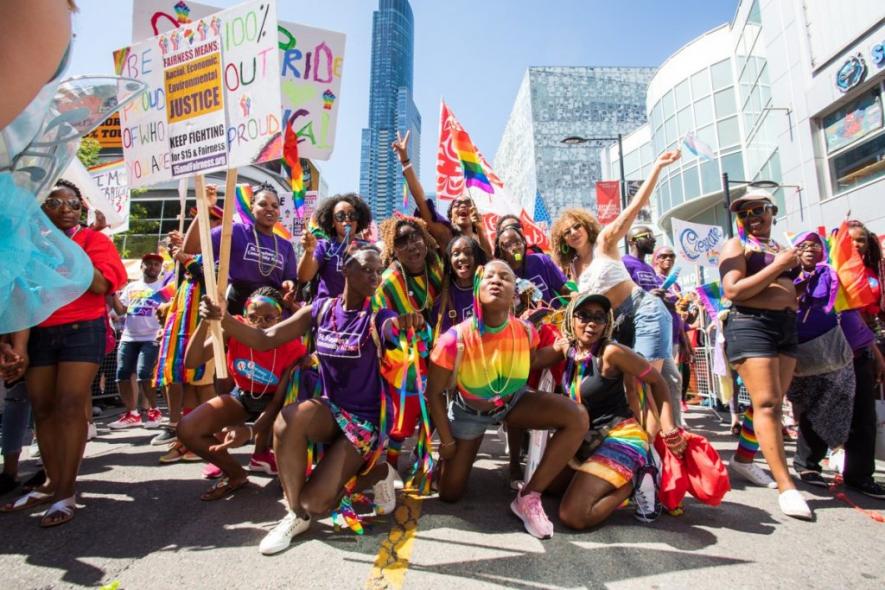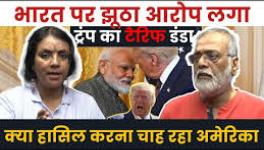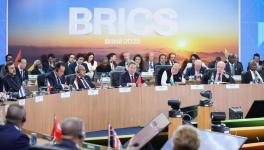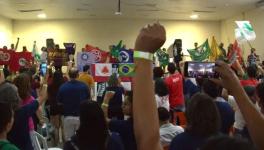Radical and Political: LGBTQ Prides Across Americas in Pride Month

Participants in the pride march in Toronto with 'Fight for 15' placards. Photo: SAMUEL ENGELKING
This Pride Month, LGBTQ pride parades have turned significantly political, with debates on police participation, refugee rights and the global shift towards far-right tendencies. The pride parades and marches that are often celebrated in the month of June around the world, this year, in many places, there were political mobilisations after years of remaining an apolitical spectacle.
The slogan “Lula Livre” reverberated across Sao Paulo in Brazil, as 3 million participants flooded the streets of the city. A large component of the pride parade this year was to mobilise against the increasingly conservative and regressive political climate fostered under the government of president Jair Bolsonaro. Many also expressed their solidarity to the former president Lula da Silva who has been in prison since April 2018 due to a politically motivated sham trial.
A different, yet equally political, discourse was witnessed in the North America. In St. Louis, Missouri in the US the Metro Trans Umbrella Group, one of the largest trans-rights organisation in the city, withdrew from the city’s pride parade even though they were the Pride Marshalls. The MTUG were reportedly disappointed by the decision to have uniformed police in the pride, which they argued was insensitive to the larger transcommunity who are among the worst victims of police violence in the US.
In Canada, organisers have echoed called for “police out of pride” and Toronto and other Canadian cities have vociferously opposed police participation in the march. Last weekend, in the pride celebration in Hamilton, Ontario, homophobic and xenophobic thugs violently attacked participants and many denounced that local police did very little to prevent the attacks.
The question of police participation in pride has, over the past several years, been a major point of a major controversy across North America. For many, police participation is antithetical to the origin of pride. The first pride marches and LGBTQ demonstrations in the US between 1969 and 1970, began as a marches against the widely publicised police violence against an LGBTQ bar, Stonewall Inn in New York City. However, by the late 1990s and 2000s, many pride marches began inducting uniformed police officers to participate in the pride, even though police violence against LGBTQ people, especially transgender people and queer people of colour has not seen any significant decline. However, in recent years activists within the community have increasingly resisted “pink-washing” of the police and taken strong stances against their participation.
Get the latest reports & analysis with people's perspective on Protests, movements & deep analytical videos, discussions of the current affairs in your Telegram app. Subscribe to NewsClick's Telegram channel & get Real-Time updates on stories, as they get published on our website.























